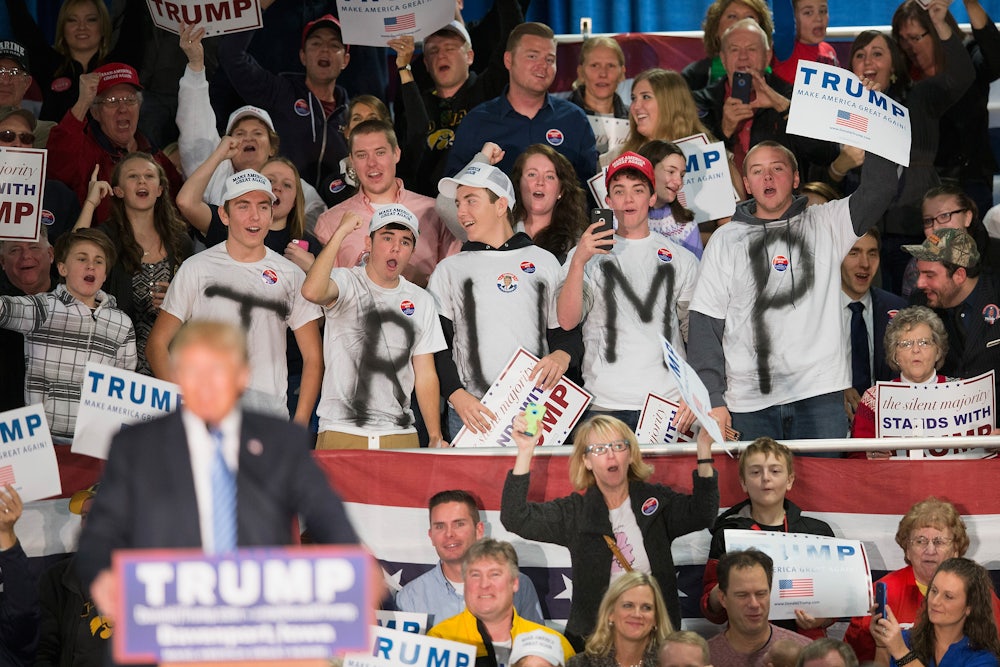Throughout President Barack Obama’s eight years in office, moaning about the disappearance of Obama the (energetic, engaging, funny) Campaigner and the emergence of Obama the (detached, dispassionate, Spock-ish) Administrator was a common criticism. But it was also the result of someone who knew that campaigning and governing were very different things that required very different skill sets. There are arguments to be made that Obama should have stayed in campaign mode to put pressure on Congress and various interest groups, but speaking to 15,000 people in Columbus every other weekend is not the most efficient use of a president’s time.
Donald Trump, a man who has a very short attention span and requires instant gratification more or less constantly, loves campaigning because he has a very short attention span and requires instant gratification more or less constantly. His strategy of doing lots of big rallies and not much else, though criticized throughout the campaign, was seemingly vindicated by his Electoral College win. And just as Trump has no intention of giving up control of his businesses, he has no intention of giving up his rallies either, maybe because he believes they are the key to his success and maybe because he is a petulant narcissist and maybe both.
Trump will launch a “victory tour” on Thursday in Ohio to thank his supporters. Earlier this month a Trump campaign staffer suggested that the tour will include “the states that we won and the swing states we flipped over,” suggesting that stops in Michigan, Iowa, Pennsylvania, and Wisconsin are forthcoming. It is also likely that Trump’s rallies will be very similar to the ones he held before the election, i.e. riddled with violence, threats against reporters, and racist and sexist attacks.
Continuing to do rallies also creates what could be a major problem for Trump as president. He has previously hinted that his campaign promises emerged from the effect that they had on the crowds, telling The New York Times editorial board, “You know, if it gets a little boring, if I see people starting to sort of, maybe thinking about leaving, I can sort of tell the audience, I just say, ‘We will build the wall!’ and they go nuts.” In order to please 10,000 people at a rally, Trump could inadvertently do any number of things—make new policies, sink markets, start a conflict abroad. This is why campaigning and governing are kept separate; merging them, as Trump plans to do, will be a disaster.
